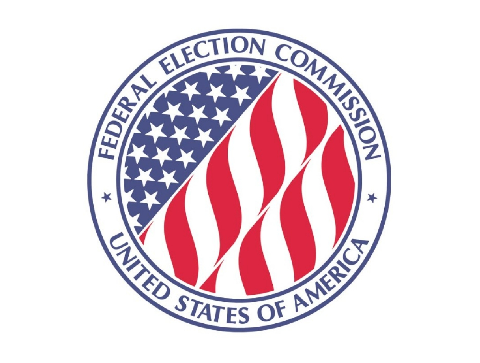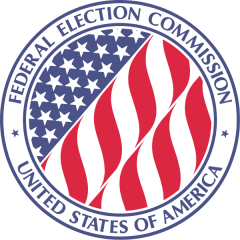PDF of comments available here
Via Electronic Submission System
Esther Gyory
Acting Assistant General Counsel
Federal Election Commission
1050 First Street, N.E.
Washington, D.C. 20463
RE: Comments on REG 2019-01: Rulemaking Petition to Amend the Definition of Contribution to Include “Valuable Information”
Dear Ms. Gyory:
On behalf of the Institute for Free Speech (“the Institute”),[1] we respectfully submit the following comments regarding the Notification of Availability on a Petition for Rulemaking[2] to amend the definition of contribution to include a new category of “Valuable Information.” The Federal Election Commission (“FEC” or “Commission”) should decline to open a rulemaking on this Petition.
The impetus for the Petition’s request was allegations of foreign – particularly Russian – involvement in the last election cycles.[3] The Institute recognizes the clear mandate of the courts “that foreign citizens do not have a constitutional right to participate in, and thus may be excluded from, activities of democratic self-government.”[4] And the Institute is on record “applaud[ing] and support[ing] the investigation and prosecution of foreign nationals who impersonate Americans to interfere in U.S. elections.”[5]
But the FEC plainly lacks credible expertise in deterring foreign intelligence services, and its actions are unlikely to have any impact on nefarious foreign actors. It will, however, place very real burdens on Americans speaking to and about their government. Accordingly, the Commission should defer to the national security apparatus and criminal enforcement agencies.[6] And it should particularly avoid adopting a rule with the many deficiencies of the Petition’s.
I. The Petition seeks to upset the Congressionally mandated process for enforcement of campaign finance violations.
The Petition proposes more than a vague change to what may be a “contribution” (see Section II, infra); it also asks the Commissioners to tie their own hands and create an automatic investigation process for those accused of receiving improper “valuable information.” This is contrary to the Commission’s enabling statute.
Proposed 11 C.F.R. § 100.57(f)(i) mandates that the FEC, “upon learning of any Foreign or Compromising Information . . . automatically and immediately, without any Commission vote” initiate an investigation, report to law enforcement, contact witnesses, and begin public reporting of the allegations.[7] The law is to the contrary:
All decisions of the Commission with respect to the exercise of its duties and powers under the provisions of this Act shall be made by a majority vote of the members of the Commission. A member of the Commission may not delegate to any person his or her vote or any decisionmaking authority or duty vested in the Commission.[8]
Furthermore, the Act specifically demands the affirmative votes of four of the Commissioners to open investigations and “report apparent violations to the appropriate law enforcement authorities.”[9] There is no basis for the Petition’s attempts to modify this legally-mandated process.
The Commission cannot write a rule that delegates its authority to initiate investigations to private complainants. The courts have long limited the authority of administrative agencies to tinker with the clear terms of a governing statute. Under the Supreme Court’s landmark decision in Chevron U.S.A. Inc. v. Natural Resources Defense Council, Inc., a court first asks “whether Congress has directly spoken to the precise question at issue. If the intent of Congress is clear, that is the end of the matter; for the court, as well as the agency, must give effect to the unambiguously expressed intent of Congress.”[10] But even if Congressional intent is not clear, Chevron’s second step asks “whether the agency’s answer is based on a permissible construction of the statute.”[11] The agency must satisfy step one before moving to step two. Administrative agencies, including the FEC, are not free to contradict or go beyond the statute.[12]
Here, Congress – in multiple statutory sections – specifically required the Commissioners to vote on investigations and other enforcement matters.[13] This is a necessary corollary to the Commission’s bipartisan structure, an important guarantor of its legitimacy, and a structural check on its ability to pursue any particular enforcement matter (and the many costs imposed upon respondents).[14] States that have outsourced the initiation of investigations to private complainants have found their agencies hijacked for political revenge.[15] And federal courts have begun to scrutinize systems that allow for such gamesmanship.[16] The sometimes-cumbersome structure of the FEC is an important bulwark for the rights of engaged Americans, and it cannot be set aside by administrative rule.
Additionally, the Petition calls for the Commission to set up a system in which it must regularly report the status of the investigation of any allegation surrounding “foreign” or “compromising” information.[17] Setting aside the costs and labor required to report this material, such a requirement creates a concrete danger that the Commission will undermine the work of intelligence services or law enforcement by blundering into parallel investigations of which it has no knowledge, and binding itself to make the progress of those investigations public despite statutory protections for this information.[18] Furthermore, this provision conflicts with other Congressional commands on the FEC, which impose sharp limits on the Commission’s ability to discuss ongoing investigations.[19] Finally, the FEC is commanded by Congress to seek conciliation agreements[20] as an alternative to full litigation on campaign finance enforcement, and regular reporting concerning these investigations may hinder such efforts.
Because a major feature of the Petition’s proposed rulemaking would contravene the campaign enforcement process established by Congress, and do so only for a specific subset of cases, the Commission should not open a rulemaking on the merits of the Petition.
II. The vague definitions of the proposed rule fail to give sufficient notice to speakers.
The Commission should tread lightly where the Petition asks it to go, because “[u]nique among federal administrative agencies, the Federal Election Commission has as its sole purpose the regulation of core constitutionally protected activity.”[21] The Petition asks that this Commission consider the regulation of speech within new categories of “information.” All the related terms are vague and overbroad, but to the extent these terms have any real meaning, they are likely already covered by existing FEC regulations. Because the proposed rule is either unconstitutional or duplicative, it should not be adopted.
As the courts have long recognized, “‘there is practically universal agreement that a major purpose of [the First] Amendment was to protect the free discussion of governmental affairs,’”[22] and the Court has long held that speech surrounding electoral campaigns “commands the highest level of First Amendment protection.”[23] Therefore, “[l]aws that burden political speech are subject to strict scrutiny, which requires the Government to prove that the restriction furthers a compelling interest and is narrowly tailored to achieve that interest.”[24]
The Buckley Court observed that laws regulating campaign speech inevitably discourage speakers from speaking plainly, and that the First Amendment does not allow speakers to be forced to “hedge and trim” their preferred message.[25] Therefore, the Commission should make every effort to ensure its regulations do not “cover[] so much speech” as to undermine “the values protected by the First Amendment.”[26]
The Petition seeks to create a category of contribution called “Valuable Information,” defined by a multifactor test that uses language like “non-trivial” and “traditional[]” in the place of actionable definitions.[27] This alone is problematic, for the regulation does not give adequate notice on what will be trivial, traditional, or traditionally trivial.
Moreover, existing law already covers much of this material – and does so with far less ambiguity and opportunity for gamesmanship. A contribution is “any gift, subscription, loan, advance, or deposit of money or anything of value made by any person.”[28] The Commission interprets the scope of “contribution” to include “the provision of any goods or services without charge or at a charge that is less than the usual and normal charge for such goods or services.”[29] Any difference “between the usual and normal charge for the goods or services at the time of the contribution and the amount charged the political committee” is treated as an in-kind contribution.[30] This works for things like polling data because we can calculate the cost of polling and the statistical analysis – and polling data is already regulated.[31]
To the extent “Valuable Information” goes beyond 11 C.F.R. § 100.52(d)(1) and related provisions, the proposed regulation runs into trouble. Terms like a “non-trivial amount for the recipient to obtain”[32] is not a workable standard for the regulated community. What is trivial? How much effort is too much effort? The same questions apply to the term “not freely available to the public.”[33] If a committee could point to a small corner of the Internet with the information, is that enough to defeat the definition? The FEC will be inundated with advisory opinion requests[34] trying to figure out what is and is not “trivial” or “not freely available to the public.” These ambiguities are especially troubling since, as already discussed, the Petition seeks to initiate investigations premised on these vague concepts while bypassing a vote of the Commission itself.
In effect, either the term “Valuable Information” is already covered by the statute, in which case a rulemaking is unnecessary, or it is not covered by the statute, in which case the rulemaking would conflict with the statute.
Additionally, the Petition seeks to regulate speech based on its content (“compromising information”).[35] In the context of “compromising information,” the definition of “valuable information” requires the speaker to know whether specific information “would likely have the effect of influencing any election.”[36] Vagueness concerns aside, this approach poses practical enforcement problems. At best, one can only know whether information had an effect on the election, and was therefore valuable, after the fact. Until then, the Commission is being asked to make assumptions, which may be colored by personal experience or partisan background, none of which is a recipe for proper notice and even-handed enforcement.
Predicting what sort of “information” will “have the effect of influencing” an election can be hard to determine even in very prominent cases. For example, then-candidate Trump was the subject of scandal surrounding a tape held by Access Hollywood.[37] But even in that famous example, exit polls showed that “70 percent of voters found Trump’s treatment of women troubling – but 29 percent of them voted for him anyway.”[38] Similarly, during the 2016 election, Hillary Clinton made several speeches before financial firm Goldman Sachs, which were later leaked, against the candidate’s wishes.[39] Were these two examples of “compromising information?” Were they “likely to have the effect” of influencing an election? Would a foreign executive at Goldman Sachs or Access Hollywood be in legal jeopardy for providing these tapes or transcripts to the opposing campaign? Would a campaign staffer be in danger if he or she solicited them?
Fundamentally, the Commission is being asked to write a rule that regulates speech, as opposed to finance or conduct. This is inherently hazardous and ill-advised, especially because trading information with actual, marketable value is covered by existing regulations. The Petition’s efforts to inject the Commission into an inherently subjective question, and to treat trade in information as though it were the purchase of bumper stickers, should be rebuffed.
* * *
The Notification expressly disclaimed any consideration of the Petition’s merits until this comment period ends.[40] But as the foregoing demonstrates, every aspect of the Petition is inappropriate for Commission rulemaking. The Institute, therefore, believes that a rulemaking on this topic is not appropriate at this time and certainly not under the proposed language in the Petition.
Thank you for considering these comments. Should you have any further questions regarding this or related proposals, please contact the Institute at (703) 894-6800 or by email at dkeating@ifs.org.
Respectfully submitted,
David Keating
Institute for Free Speech
124 S. West Street, Suite 201
Alexandria, VA 22314
[1] The Institute is a nonpartisan, nonprofit § 501(c)(3) organization that promotes and protects the First Amendment political rights of speech, press, assembly, and petition. Originally known as the Center for Competitive Politics, it was founded in 2005 by Bradley A. Smith, a former chairman of the Commission. In addition to scholarly and educational work, the Institute is actively involved in targeted litigation against unconstitutional laws at both the state and federal levels.
[2] Fed. Election Comm’n, Notice 2019-01: Rulemaking Petition: Amending the Definition of Contribution to Include “Valuable Information,” 54 Fed. Reg. 37154 (July 31, 2019) (“Notification”); Sai, Petition for Rulemaking to Add 11 C.F.R. § 100.57 (Apr. 27, 2019) (“Petition”) available at https://sers.fec.gov/fosers/showpdf.htm?docid=408296.
[3] Petition at 1 (using the Russian term, “kompromat,” in explaining “compromising material”). Google Translate defines “kompromat” as “incriminating evidence.” Google Translate, “kompromat” (last accessed Aug. 21, 2019) https://translate.google.com/#view=home&op=translate&sl=ru&tl=en&text=kompromat.
[4] Bluman v. FEC, 800 F. Supp. 2d 281, 288 (D.D.C. 2011) (three-judge court) summ. aff’d 565 U.S. 1104 (2012).
[5] Inst. for Free Speech, “Statement on Indictments of 13 Russians for Interfering in 2016 Election” (Feb. 16, 2018) https://www.ifs.org/news/institute-for-free-speech-statement-on-indictments-of-13-russians-for-interfering-in-2016-election.
[6] Testimony of Allen Dickerson, Legal Director, Center for Competitive Politics, before the United States House of Representatives Oversight and Government Reform Committee’s Subcommittee on Information Technology on Internet Speech Regulation at 4 (Oct. 24, 2017) available at https://www.ifs.org/wp-content/uploads/2017/10/2017-10-24_Dickerson-Written-Testimony_Internet-Speech-Regulation_House-Oversight-Subcommittee-Hearing.pdf. (“Nevertheless, regardless of the problem’s scope, the deterrence of foreign powers is a mission for which campaign finance law and the FEC are poorly suited. Counterintelligence and diplomatic efforts, and the criminal authority of the Department of Justice (‘DOJ’), are a better fit.”).
[7] Petition at 4.
[8] 52 U.S.C. § 30106(c) (emphasis added); see also 52 U.S.C. § 30109(a)(2).
[9] Compare 52 U.S.C. § 30106(c) (“the affirmative vote of 4 members of the Commission shall be required in order for the Commission to take any action in accordance with paragraph (6), (7), (8), or (9) of [52 U.S.C. § 30107(a)]”) (emphasis added) with 52 U.S.C. § 30107(a)(9) (granting the power “to conduct investigations and hearings expeditiously, to encourage voluntary compliance, and to report apparent violations to the appropriate law enforcement authorities”).
[10] 467 U.S. 837, 842-43 (1984).
[11] Id. at 843.
[12] FEC v. Swallow, 304 F. Supp. 3d 1113, 1117 (D. Utah 2018) (“The first step in the Chevron analysis asks whether the underlying statute is ambiguous and only if it is does the court consider (and give deference to) the Agency’s interpretation. Here the statute is unambiguous.”).
[13] 52 U.S.C. § 30106(c); 52 U.S.C. § 30107(a)(9); 52 U.S.C. §§ 30109(a)(2) and (a)(4).
[14] Luke Wachob, Bipartisanship works for the FEC, Washington Examiner (Oct. 19, 2014) available at https://www.washingtonexaminer.com/bipartisanship-works-for-the-fec (“A partisan election watchdog is no watchdog at all – it is an attack dog.”).
[15] See, e.g., Campaign Integrity Watchdog v. Coloradans for a Better Future, 411 P.3d 173, 174 (Colo. 2016) (“This is the fourth in a series of complaints brought by claimant, Campaign Integrity Watchdog (CIW), or its principal officer, Matthew Arnold . . . [i]n 2012, Arnold lost the Republican primary election for University of Colorado Regent to Brian Davidson.”).
[16] Susan B. Anthony List v. Driehaus, 573 U.S. ___, ___, 134 S. Ct. 2334, 2345 (2014) (criticizing a statute that “allow[ed] ‘any person’ with knowledge of the purported violation to file a complaint” as “not restricted to state officials who are constrained by explicit guidelines or ethical obligations,” and recognizing “a real risk of complaints from, for example, political opponents”); Holland v. Williams, No. 16-cv-00138-RM-MLC, 2018 U.S. Dist. LEXIS 98946 at *32 (D. Colo. June 12, 2018) (finding Colorado’s private complainant system facially unconstitutional).
[17] Petition at 4 (Proposed 11 C.F.R. § 100.57(f)).
[18] See, e.g., 5 U.S.C. § 552(b)(7) (FOIA disclosure exemption for law enforcement investigations).
[19] 52 U.S.C. §§ 30109(a)(4)(B)(i); 30109(a)(12)(A) (“Any notification or investigation made under this section shall not be made public by the Commission or by any person without the written consent of the person receiving such notification or the person with respect to whom such investigation is made.”).
[20] 52 U.S.C. § 30109(a)(4)(A)(i) (“the Commission shall attempt, for a period of at least 30 days, to correct or prevent such violation by informal methods of conference, conciliation, and persuasion, and to enter into a conciliation agreement with any person involved.”).
[21] AFL-CIO v. FEC, 333 F.3d 168, 170 (D.C. Cir. 2003).
[22] Buckley v. Valeo, 424 U.S. 1, 14 (1976) (per curiam) (quoting Mills v. Ala., 384 U.S. 214, 218 (1966)).
[23] Williams-Yulee v. Fla. Bar, 575 U.S. ___, ___, 135 S. Ct. 1656, 1665 (2015).
[24] Citizens United v. Fed. Election Comm’n, 558 U.S. 310, 340 (2010) (citation and quotation marks omitted); Williams-Yulee, 135 S. Ct. at 1665 (“A State may restrict the speech of a judicial candidate only if the restriction is narrowly tailored to serve a compelling interest.”); Ariz. Free Enter. Club’s Freedom Club PAC v. Bennett, 564 U.S. 721, 734 (2011) (collecting cases).
[25] Buckley, 424 U.S. at 43 (quoting Thomas v. Collins, 323 U.S. 516, 535 (1945)).
[26] Watchtower Bible & Tract Soc’y of N.Y., Inc. v. Vill. of Stratton, 536 U.S. 150, 165-166 (2002).
[27] Petition at 3 (Proposed 11 C.F.R. § 100.57(a)).
[28] 52 U.S.C. § 30101(8)(A)(i); cf. 52 U.S.C. §§ 30118(b)(2).
[29] 11 C.F.R. § 100.52(d)(1).
[30] Id.
[31] See, e.g., 11 C.F.R. § 106.4.
[32] Petition at 3 (Proposed 11 C.F.R. § 100.57(a)(iii)).
[33] Id. (Proposed 11 C.F.R. § 100.57(a)(i)).
[34] 52 U.S.C. § 30108.
[35] Petition at 3 (Proposed 11 C.F.R. § 100.57(c)).
[36] Id. (Proposed 11 C.F.R. § 100.57(a)(iv)(1)).
[37] Access Hollywood, “Donald Trump: The Comments On Women You Hadn’t Heard” (Oct. 7, 2016) https://www.accessonline.com/videos/donald-trump-the-comments-on-women-you-hadnt-heard (discussing the taping of the interview that was the source of the original comments).
[38] Phillip Bump, How the ‘Access Hollywood’ incident gave us the Trump we recognize today, The Washington Post (July 10, 2019) available at https://www.washingtonpost.com/politics/2019/07/10/how-access-hollywood-incident-gave-us-trump-we-recognize-today/.
[39] See, e.g., Seth Abramson, Release of Clinton’s Wall Street Speeches Could End Her Candidacy for President, Huffington Post (Apr. 15, 2016) https://www.huffpost.com/entry/release-of-clintons-wall-street-speeches_b_9698632; Jim Zarroli, Emails Reveal Clinton’s Mixed Relationship With Wall Street, National Public Radio: The Two-Way (Oct. 8, 2016) https://www.npr.org/sections/thetwo-way/2016/10/08/497204286/emails-reveal-clintons-mixed-relationship-with-wall-street.
[40] 84 Fed. Reg. at 37155.














